
Imlil Region: Gateway to the High Atlas Mountains
Nestled in the heart of the High Atlas Mountains, the Imlil Region offers a serene escape from the hustle and bustle of Moroccan cities. Known for its stunning landscapes and traditional Berber villages, this destination is perfect for nature lovers and adventure seekers alike. The picturesque setting is dominated by the towering peaks of the mountains, with Mount Toubkal, the highest peak in North Africa, providing a breathtaking backdrop. The Imlil Region is a trekking paradise, with numerous trails catering to all levels of hikers. Whether you're an experienced mountaineer or a casual walker, you'll find paths that lead you through lush valleys, terraced fields, and charming villages. The local Berber culture is deeply rooted in the area, offering visitors a unique opportunity to experience their customs, cuisine, and hospitality. Apart from trekking, the Imlil Region is also a great spot for other outdoor activities such as mountain biking, rock climbing, and even skiing in the winter months. The region's natural beauty is complemented by its warm and welcoming locals, making it a must-visit destination for anyone exploring Morocco.
Local tips in Imlil Region
- Visit during spring or autumn for the best weather conditions and fewer crowds.
- Hire a local guide for trekking to ensure safety and gain deeper insights into the region.
- Stay in a traditional guesthouse to experience authentic Berber hospitality.
- Bring cash, as ATMs are scarce and many places do not accept credit cards.
- Pack layers of clothing, as temperatures can vary greatly between day and night.
Imlil Region: Gateway to the High Atlas Mountains
Nestled in the heart of the High Atlas Mountains, the Imlil Region offers a serene escape from the hustle and bustle of Moroccan cities. Known for its stunning landscapes and traditional Berber villages, this destination is perfect for nature lovers and adventure seekers alike. The picturesque setting is dominated by the towering peaks of the mountains, with Mount Toubkal, the highest peak in North Africa, providing a breathtaking backdrop. The Imlil Region is a trekking paradise, with numerous trails catering to all levels of hikers. Whether you're an experienced mountaineer or a casual walker, you'll find paths that lead you through lush valleys, terraced fields, and charming villages. The local Berber culture is deeply rooted in the area, offering visitors a unique opportunity to experience their customs, cuisine, and hospitality. Apart from trekking, the Imlil Region is also a great spot for other outdoor activities such as mountain biking, rock climbing, and even skiing in the winter months. The region's natural beauty is complemented by its warm and welcoming locals, making it a must-visit destination for anyone exploring Morocco.
When is the best time to go to Imlil Region?
Iconic landmarks you can’t miss
Cascade imlil
Experience the breathtaking beauty of Cascade Imlil, nestled in the Atlas Mountains, a perfect blend of adventure and serene nature.
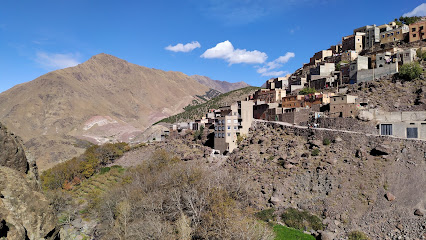
Imlil Toubkal
Explore Imlil Toubkal, a stunning hiking area in the High Atlas Mountains, perfect for adventure seekers and nature lovers alike in the heart of Morocco.
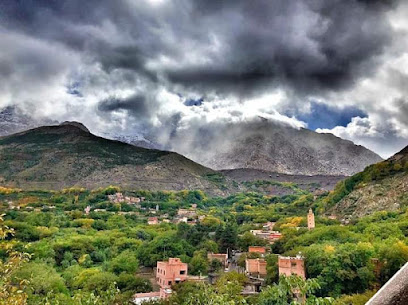
IMLIL TREKS TOUBKAL
Experience the breathtaking beauty of Imlil Treks Toubkal, the gateway to Mount Toubkal and the heart of Morocco's Atlas Mountains.
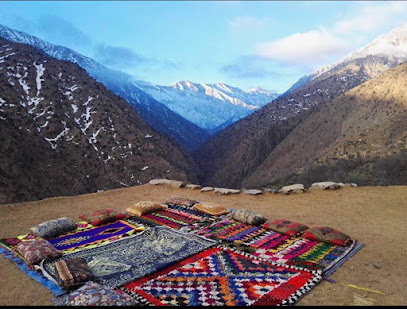
Imlil Trekking Company - Trekking Mountains Atlas -Toubkal Trek
Discover the enchanting Imlil village, your gateway to the majestic Atlas Mountains and unforgettable trekking experiences.
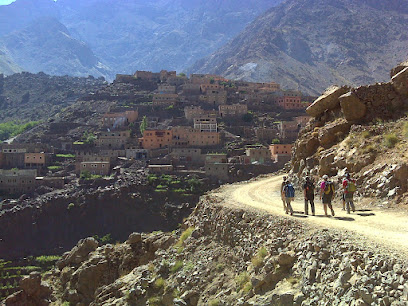
La Vallée de Imlil
Explore La Vallée de Imlil: A breathtaking valley in the Atlas Mountains, renowned for trekking, Berber culture, and stunning natural beauty.
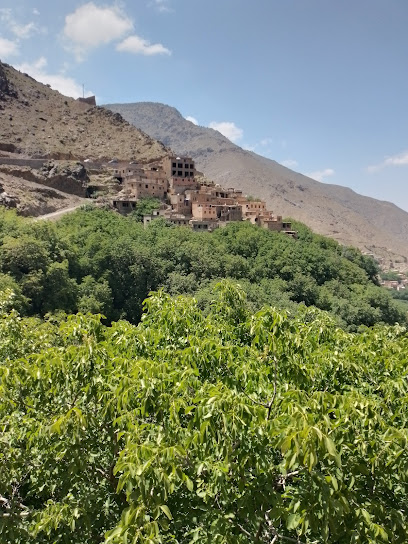
imlil waterfalls
Explore the enchanting Imlil Waterfalls, a serene natural wonder in the heart of the Atlas Mountains, perfect for hikers and nature lovers.
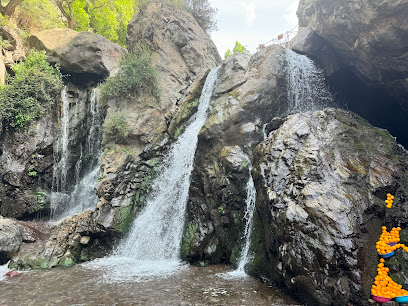
Hiking in Morocco Tours
Experience the breathtaking beauty and rich culture of Imlil with Hiking in Morocco Tours, your gateway to the stunning Atlas Mountains.
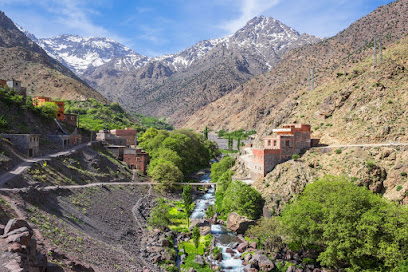
Unmissable attractions to see
Lac Ifni
Discover Lac Ifni, a serene alpine lake in Morocco's Atlas Mountains, perfect for hiking, picnicking, and immersing yourself in nature's beauty.
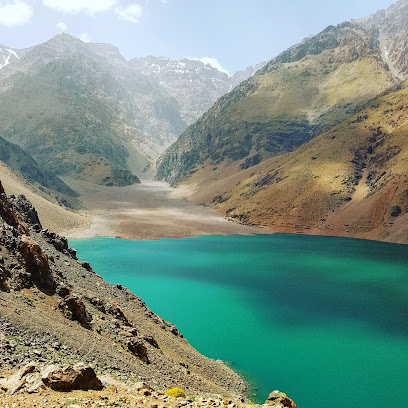
La Rosa Agafay
Experience the magic of Moroccan cuisine in the breathtaking Agafay Desert at La Rosa Agafay, a must-visit culinary oasis near Marrakesh.
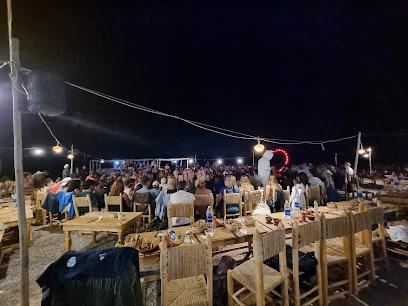
Mountain Sahara Treks
Discover the breathtaking beauty of Mountain Sahara Treks in Imlil, Morocco, where adventure meets stunning landscapes and rich culture.
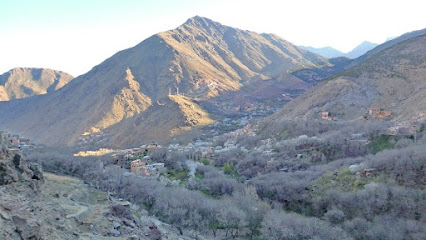
DAR AMDAINE
Explore the stunning landscapes of Dar Amdaine, a premier hiking area in Imlil, Morocco, with breathtaking views of the Atlas Mountains and rich local culture.
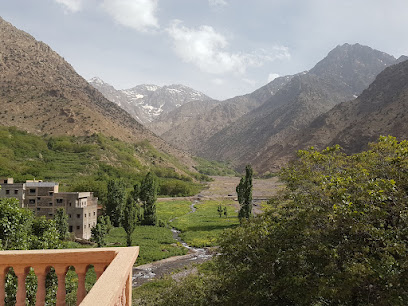
Atlas Mountains Day Trip
Experience the breathtaking beauty and adventure of the Atlas Mountains in Morocco, a perfect destination for hiking and cultural exploration.
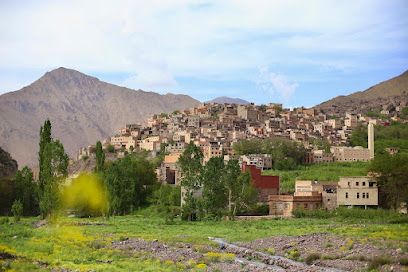
Cascades gelées d'IGHOULIDNE
Explore the breathtaking beauty of the Cascades Gelées d'Ighoulidne in Imlil, a perfect hiking destination for nature lovers and adventure seekers.
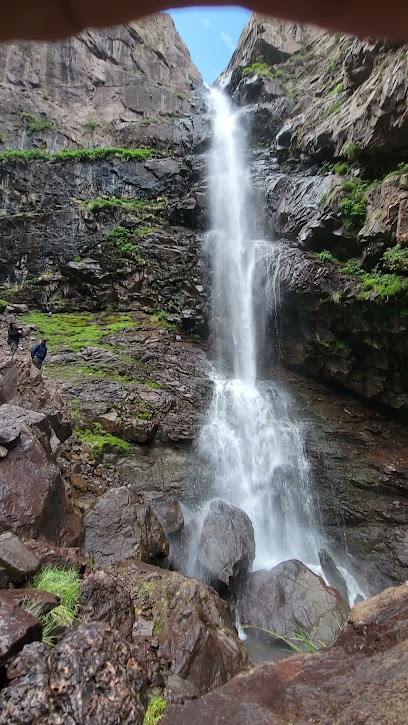
Boucle autour Imlil
Explore Boucle autour Imlil, a stunning hiking area in the Atlas Mountains, offering breathtaking views, cultural encounters, and unforgettable outdoor adventures.
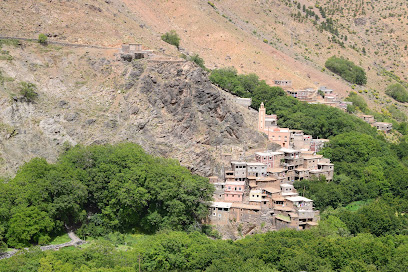
High atlas mountains view
Explore the majestic High Atlas Mountains, a paradise for hiking and cultural experiences in Morocco's breathtaking landscape.
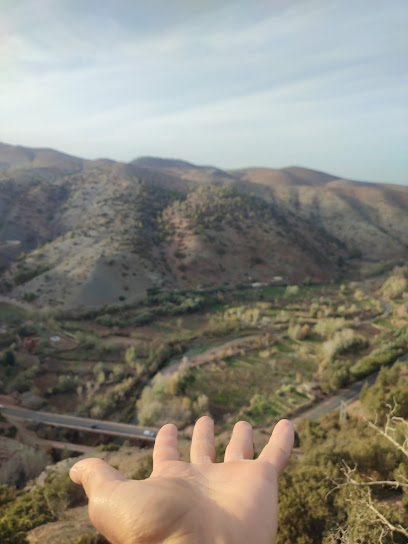
Biguinoussene
Explore the breathtaking hiking trails of Biguinoussene, a hidden gem in Ifergane, Morocco, perfect for nature lovers and adventure seekers.
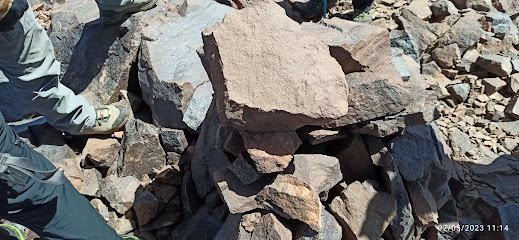
Mount Toubkal Small Group Tours
Experience the breathtaking beauty and adventure of Mount Toubkal, North Africa's highest peak, and immerse yourself in the rich culture of Morocco.
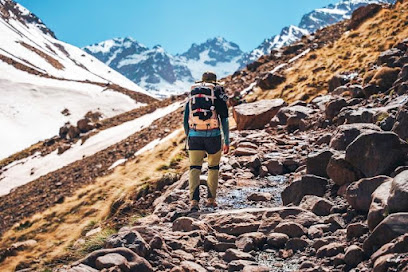
Essential places to dine
Riad Jnane Imlil
Discover tranquility and authentic Moroccan hospitality at Riad Jnane Imlil, nestled in the breathtaking Atlas Mountains.
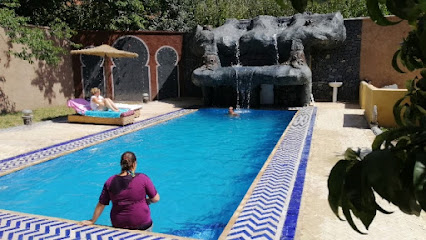
La table de tigmi Ait Mizane
Experience authentic Moroccan cuisine amidst stunning mountain views at La Table de Tigmi Ait Mizane in Imlil.
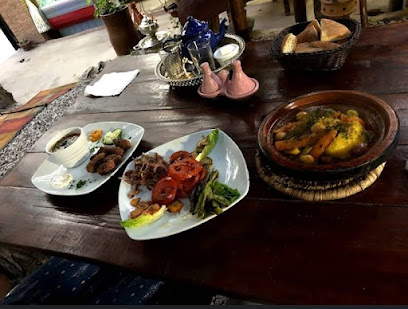
Zaratoustra Auberge
Experience authentic Moroccan hospitality at Zaratoustra Auberge in Imlil—where exquisite cuisine meets breathtaking mountain views.

Targa Imoula imlil
Discover authentic Moroccan cuisine at Targa Imoula, nestled in the stunning Atlas Mountains of Imlil.

Auberge Atlas Tamatertt
Experience authentic Moroccan hospitality at Auberge Atlas Tamatertt amidst stunning mountain scenery.

Auberge Atlas Tichka
Experience authentic Moroccan cuisine at Auberge Atlas Tichka in Asni, where traditional flavors meet stunning mountain views.
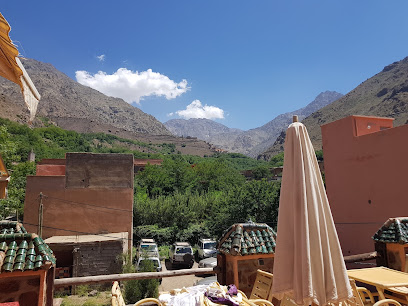
Restaurant Cascade Ait Misan
Experience authentic Moroccan cuisine amidst stunning mountain views at Restaurant Cascade Ait Misan in Aroumd.
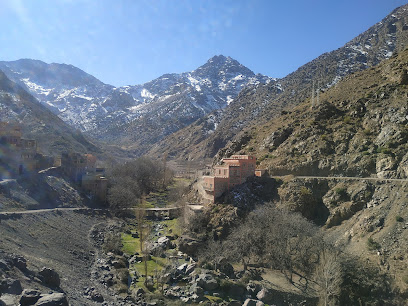
Git Le Toubkal
Experience authentic Moroccan cuisine at Git Le Toubkal in Aroumd, surrounded by breathtaking views of the Atlas Mountains.
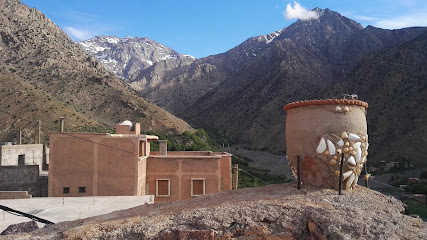
Happy Family House
Savor authentic Moroccan cuisine at Happy Family House in Imlil – where delicious food meets stunning mountain views.
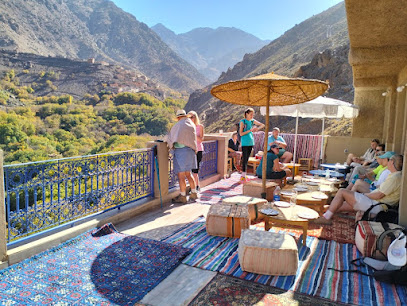
Roches Armed Sarl
Discover authentic Moroccan cuisine at Roches Armed Sarl in Imlil, surrounded by breathtaking views of the Atlas Mountains.
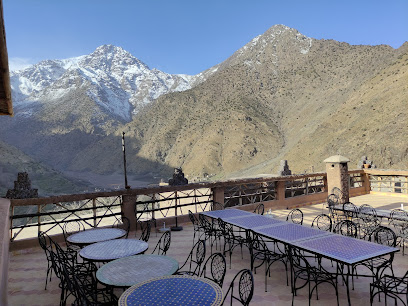
Café Taghazout
Discover Café Taghazout in Imlil - A perfect family-friendly spot offering delicious Moroccan cuisine amidst breathtaking mountain views.
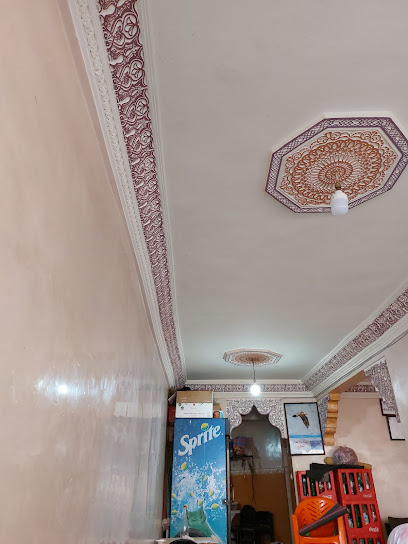
Authentic Toubkal Lodge Restaurant
Experience authentic Moroccan cuisine in Imlil at Authentic Toubkal Lodge Restaurant with breathtaking views of the Atlas Mountains.
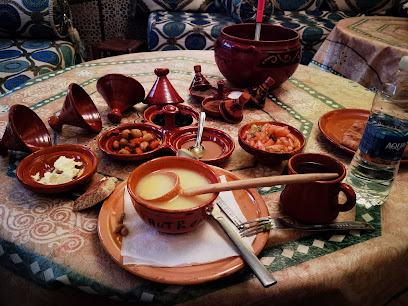
Restaurant Atlas Eco
Experience authentic Moroccan cuisine at Restaurant Atlas Eco in Imlil while enjoying breathtaking views of the Atlas Mountains.
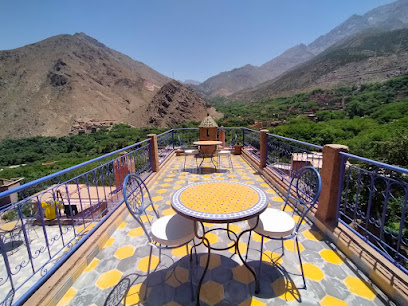
Restaurant Terrase d'Imlil
Experience authentic Moroccan cuisine with breathtaking mountain views at Restaurant Terrase d'Imlil in Irehhalen.
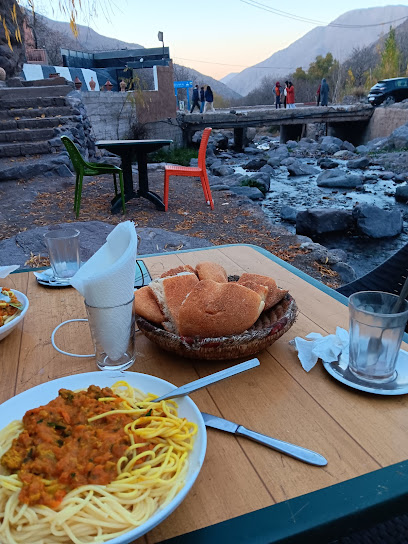
Cafe Imlil waterfalls
Cafe Imlil Waterfalls: A serene dining experience amidst stunning waterfalls and majestic mountain views in Imlil.
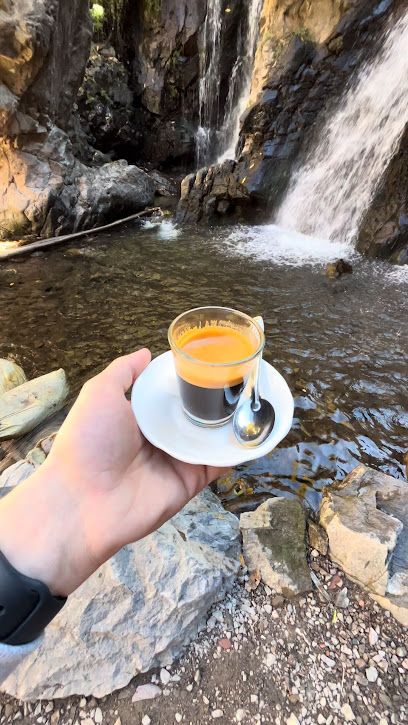
Markets, malls and hidden boutiques
Trésors El Mamoun
Explore Trésors El Mamoun in Marrakesh for unique handicrafts and gourmet delights reflecting the rich Moroccan culture.
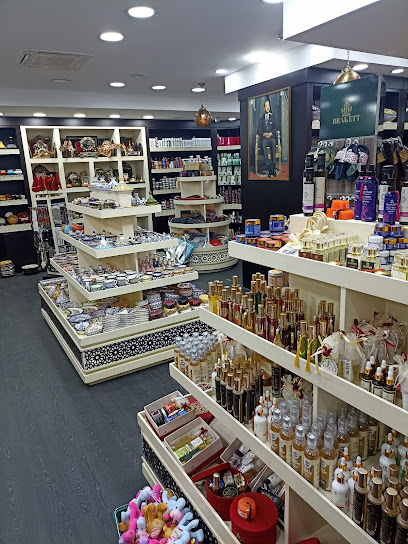
Max & Jan Medina
Explore the vibrant world of Moroccan fashion at Max & Jan Medina, a unique boutique in the heart of Marrakesh's historic Medina.
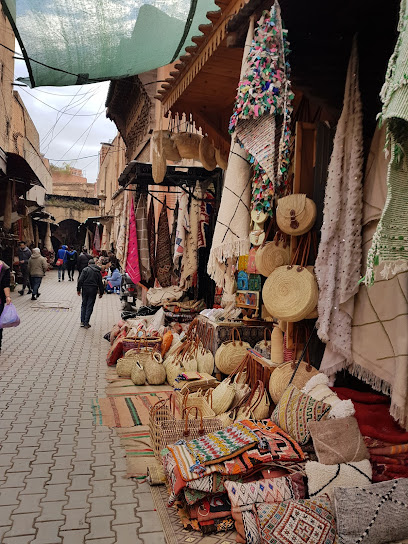
kichoix Av Allal el fassi
Discover unique Moroccan fashion at Kichoix, a boutique in Marrakech offering a blend of traditional and contemporary styles.
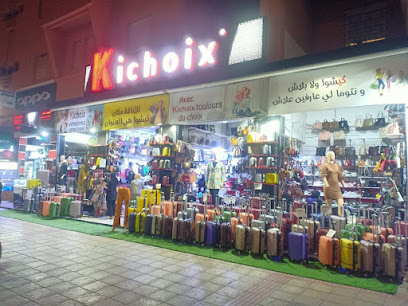
Les Nomades De Marrakech-Best Moroccan Carpets and Rugs store
Explore exquisite Moroccan carpets at Les Nomades De Marrakech, where tradition meets artistry in the heart of Marrakesh's Medina.
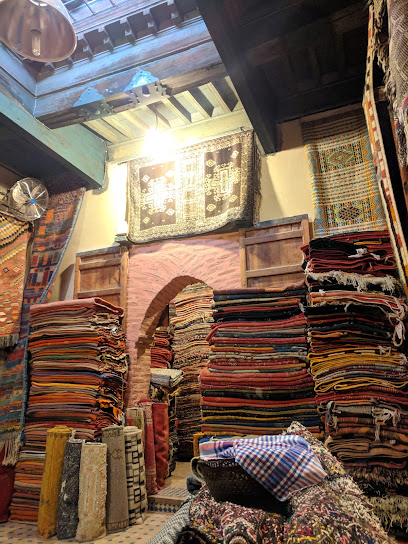
Medina Mall Marrakech Shopping Center Artisanal
Explore the Medina Mall Marrakech for a blend of traditional crafts, modern shopping, and authentic Moroccan cuisine in a stunning setting.
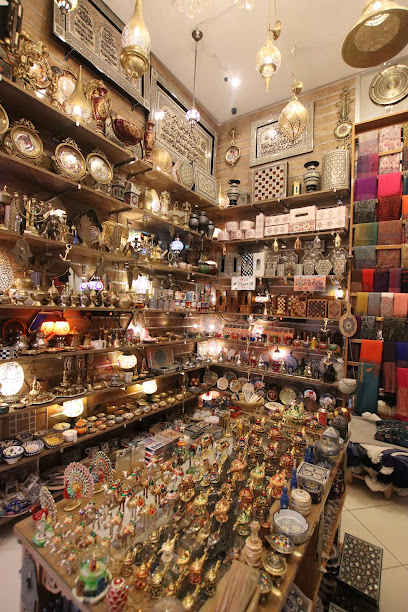
La table de tigmi Ait Mizane
Experience the perfect blend of Moroccan and Western cuisine at La Table de Tigmi Ait Mizane in Imlil, where every meal is a culinary journey.
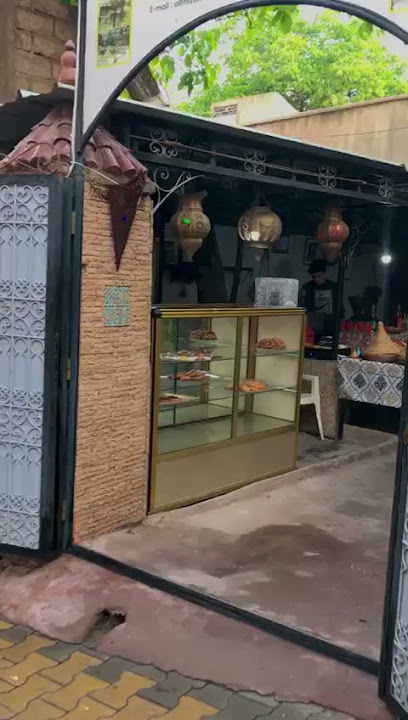
Louis Vuitton Marrakech
Discover the essence of luxury at Louis Vuitton Marrakech, a premier destination for exquisite leather goods and fashion accessories.
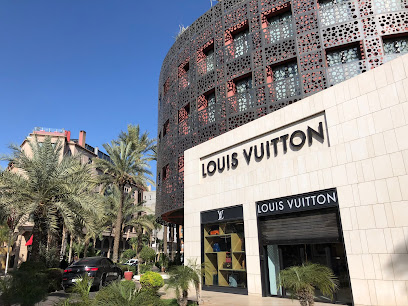
33 RUE MAJORELLE
Explore the vibrant artistry of Morocco at 33 Rue Majorelle, a must-visit souvenir store in Marrakech offering unique clothing, jewelry, and home goods.
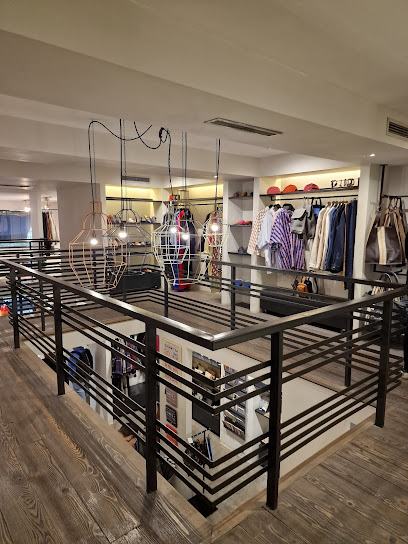
inēs concept store
Discover unique gifts and organic cosmetics at Inēs Concept Store in Marrakesh, where Moroccan artistry meets sustainable luxury.
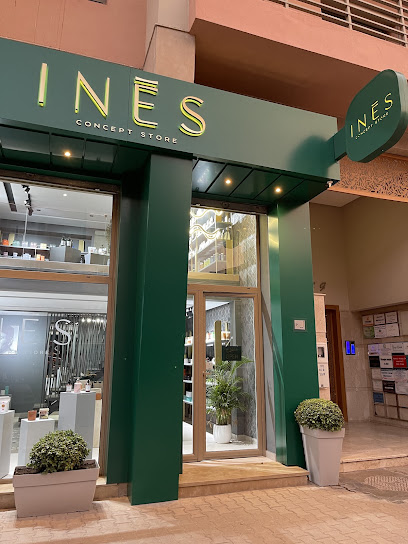
mohameds shop
Explore the treasures of Morocco at Mohamed's Shop, a unique gift shop in Marrakesh filled with authentic handcrafted souvenirs.
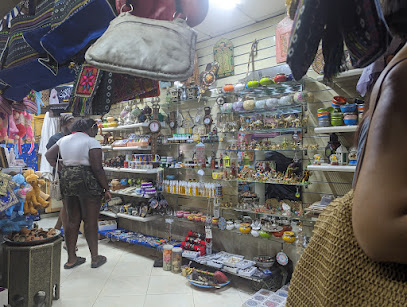
Karim Bouriad Bazar - Moroccan Caftan Marrakech
Explore the vibrant world of Moroccan fashion at Karim Bouriad Bazar, home to exquisite caftans and unparalleled craftsmanship in the heart of Marrakech.
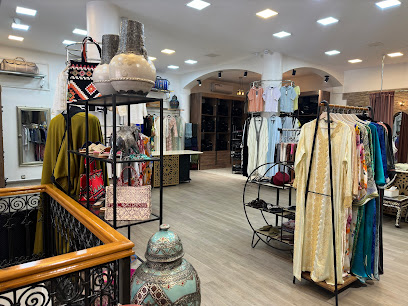
Coopérative féminine d'huile d'argan
Immerse yourself in the tradition of argan oil at Coopérative Féminine d'Huile d'Argan, where culture and community come together.
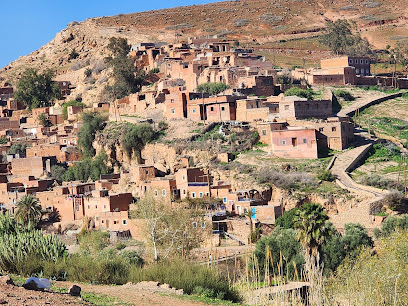
By Faissal - Traditional weaving - handwoven scarves - Marrakech
Explore the artistry of traditional Moroccan textiles at By Faissal, a charming store in Marrakech offering handwoven scarves and unique handicrafts.
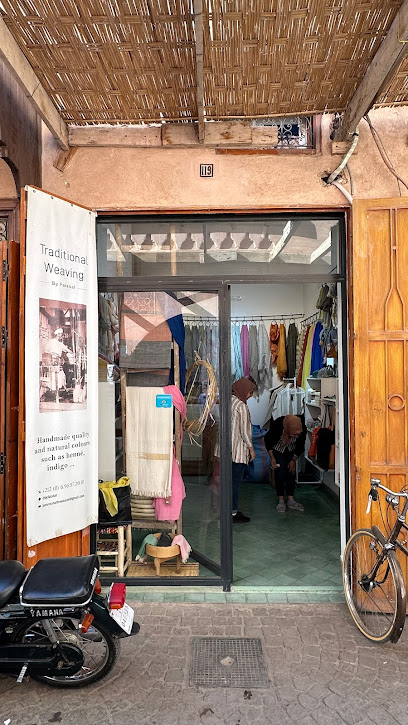
Funky Cool Medina
Explore Funky Cool Medina, your ultimate destination for unique Moroccan fashion and vibrant clothing styles in the heart of Marrakesh.
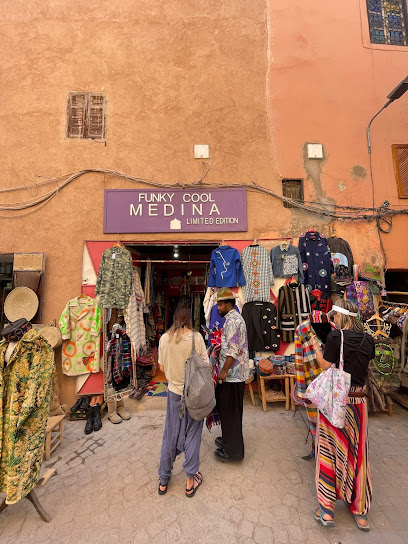
Latifshop Moroccan Artisanat & déco
Explore the vibrant world of Moroccan craftsmanship at Latifshop, where unique gifts and exquisite decor await in the heart of Marrakesh.
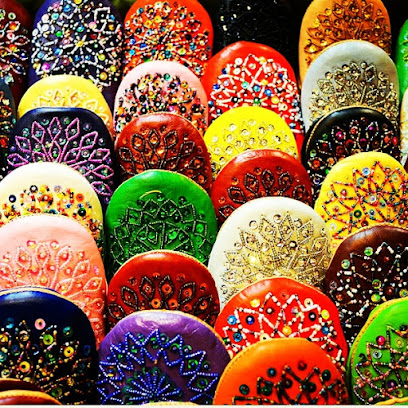
Essential bars & hidden hideouts
La Pergola
Experience the vibrant flavors and sounds of Marrakech at La Pergola, where Moroccan cuisine meets live jazz in an unforgettable dining atmosphere.
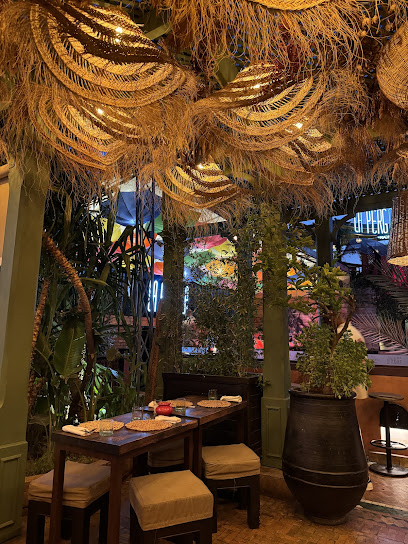
Restaurant - Le 68 Bar à Vin Marrakech
Discover the charm of French cuisine and fine wines at Le 68 Bar à Vin, a must-visit restaurant in the heart of Marrakech.
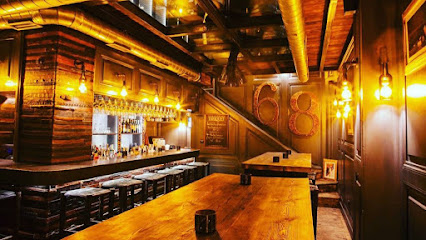
O’Mulligan Resto Pub
Discover the lively O'Mulligan Resto Pub in Marrakech, blending local flavors with a modern pub atmosphere for an unforgettable experience.
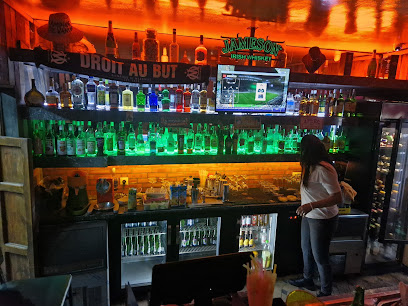
Trekking Morocco Mountains
Discover the breathtaking beauty and adventure of the High Atlas at Trekking Morocco Mountains, where every trek reveals the splendor of Moroccan culture.
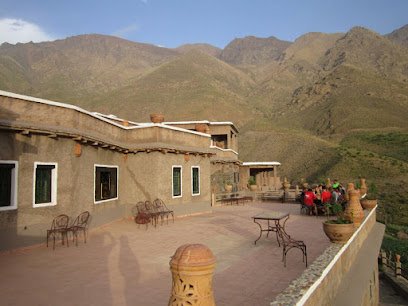
Dar Atlas
Discover the tranquility of Dar Atlas, a stunning hotel in the heart of Imlil Valley, perfect for nature lovers and adventurers alike.
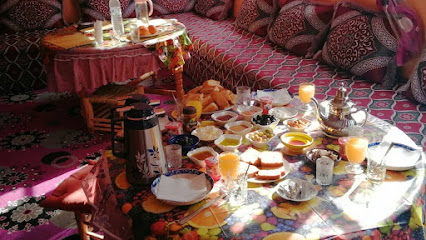
Atlas Prestige
Experience the beauty of Imlil at Atlas Prestige, a charming guest house surrounded by majestic mountains and rich Moroccan culture.

Riad Jnane Imlil
Discover the enchanting beauty of the Atlas Mountains at Riad Jnane Imlil, your sanctuary for relaxation and adventure in Morocco.
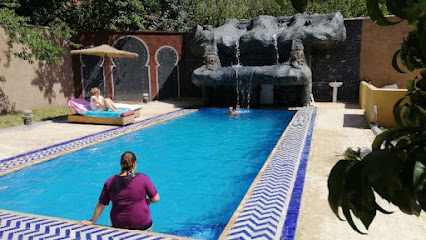
Atlas Imoula
Experience the authentic charm of Atlas Imoula in Imlil, where Moroccan hospitality meets stunning mountain views and delicious cuisine.

Berber Family lodge
Discover the charm of Moroccan hospitality at Berber Family Lodge, where stunning mountain views and authentic experiences await.

Dar Imlil
Experience the charm of Dar Imlil, a cozy guest house in the heart of the Atlas Mountains, perfect for adventurers and serene seekers alike.

La table de tigmi Ait Mizane
Discover authentic Moroccan cuisine and irresistible pastries at La Table de Tigmi Ait Mizane in Imlil, a culinary oasis in the Atlas Mountains.
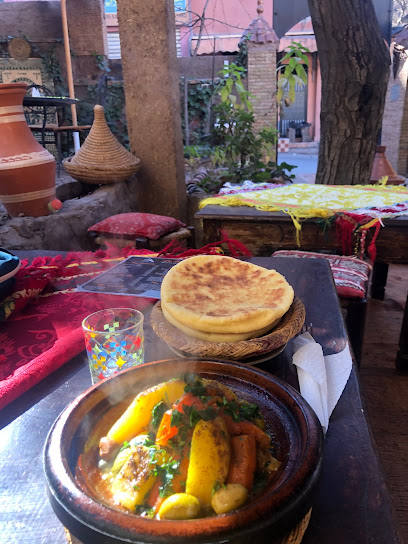
Imlil Lodge
Discover the tranquility and adventure of Imlil Lodge in the breathtaking Atlas Mountains, the perfect getaway for nature enthusiasts and culture seekers.

DAR IMPERIAL
Experience the charm of Moroccan hospitality at Dar Imperial, your gateway to the stunning Atlas Mountains and authentic local culture.
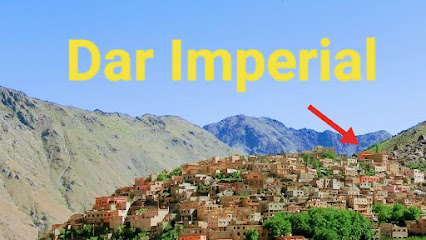
Zaratoustra Auberge
Discover tranquility and adventure at Zaratoustra Auberge, Imlil's charming hotel and restaurant, nestled in the breathtaking Atlas Mountains.

Local Phrases about Imlil Region
-
- HelloSalam
[sah-lahm] - GoodbyeBeslama
[bes-lah-mah] - YesIh
[eeh] - NoLla
[yah] - Please/You're welcomeAfak
[ah-fahk] - Thank youShukran
[shook-rahn] - Excuse me/SorrySamahani
[sah-mah-hah-nee] - How are you?Labas?
[lah-bahs] - Fine. And you?Zwin. O ntak?
[zween. oh en-tahk] - Do you speak English?Tetkellam Englezi?
[tet-kell-lam en-gleh-zee] - I don't understandMa fhamtch
[mah fhamtsh]
- HelloSalam
-
- I'd like to see the menu, pleaseBghit nchouf la carte, afak
[buh-geet in-shoof la kar-tuh, ah-fahk] - I don't eat meatMaakolch lkhodar
[mah-ah-kole-sh luh-kho-dar] - Cheers!Bislama!
[bees-lah-mah] - I would like to pay, pleaseBghit naddf, afak
[buh-geet nah-dif, ah-fahk]
- I'd like to see the menu, pleaseBghit nchouf la carte, afak
-
- Help!Aide!
[ayd] - Go away!Dji!
[gee] - Call the Police!Sifri l'michwar!
[see-free l'meesh-war] - Call a doctor!Sifri l'doktor!
[see-free l'dok-tor] - I'm lostKont zayd
[kohnt zayd] - I'm illAna malade
[ah-nah mah-lahd]
- Help!Aide!
-
- I'd like to buy...Bghit nshri...
[buh-geet nesh-ree] - I'm just lookingAna ghir nchouf
[ah-nah geer in-shoof] - How much is it?Chhal kayn?
[sh-hal kine] - That's too expensiveHadak ghal
[ha-dak ghal] - Can you lower the price?Wach kaydir thamane?
[wach kay-deer tha-mah-neh]
- I'd like to buy...Bghit nshri...
-
- What time is it?Chhal lwa9t?
[sh-hal l-waht] - It's one o'clockSaa wa7da
[sah wah-dah] - Half past (10)Nis f tlaata
[neess f tlaah-tah] - MorningSba7
[s-bah] - AfternoonDoha
[do-hah] - Evening3shiya
[a-shee-yah] - YesterdayKemla
[kem-lah] - TodayDaba
[da-bah] - TomorrowGhadwa
[ghad-wah] - 1Wa7ed
[wah-hed] - 2Jouj
[jooj] - 3Tlaata
[tlaah-tah] - 4Arba3
[ar-bah-tah] - 5Khamsa
[kham-sah] - 6Setta
[set-tah] - 7Sb3a
[sib-ah] - 8Tmnya
[tum-nee-yah] - 9Tissa
[tiss-sah] - 103shra
[a-she-rah]
- What time is it?Chhal lwa9t?
-
- Where's a/the...?Feen...
[feen] - What's the address?Chnu l9i3a?
[sh-noo l-kih-ah] - Can you show me (on the map)?Wach kaydir tzidni (3la lkhariita)?
[wach kay-deer tzeed-nee a-lah l-khah-ree-tah] - When's the next (bus)?Ch7al fach?
[sh-hal faa-sh] - A ticket (to ....)Billet (ila ....)
[bee-yet ee-lah]
- Where's a/the...?Feen...
History of Imlil Region
-
The Imlil Region is deeply rooted in Berber history, with the indigenous Berber people, or Amazigh, having inhabited the High Atlas Mountains for centuries. Their presence is evident in the traditional architecture of the villages, the Berber language, and their enduring customs and traditions.
-
In the 11th century, the Almoravid dynasty emerged from the deserts of present-day Mauritania and Western Sahara, eventually establishing control over much of North Africa and Spain. The Imlil Region, positioned in the High Atlas Mountains, played a strategic role in the defense and logistics of the dynasty, providing a natural fortress and a source of hardy mountain warriors.
-
During the early 20th century, Morocco was subject to French colonial rule. The Imlil Region witnessed the construction of roads and infrastructure as part of the French efforts to exert control and facilitate resource extraction. This era saw the introduction of modern amenities and changes in the social and economic fabric of the region.
-
The Agadir earthquake of 1960, although its epicenter was far from Imlil, had a profound impact on the region. The disaster prompted a wave of migration from the affected coastal areas to the High Atlas, bringing new cultural influences and changes to the demographic landscape of Imlil.
-
In the latter half of the 20th century, the Imlil Region began to develop as a hub for trekking and adventure tourism. The establishment of trekking routes to Mount Toubkal, the highest peak in North Africa, brought international attention to the area. This influx of tourists contributed to the local economy and led to the development of guesthouses, guided tours, and other tourism-related services.
-
In recent years, there has been a growing emphasis on conservation and sustainable tourism in the Imlil Region. Efforts to preserve the natural beauty and cultural heritage of the High Atlas Mountains have included the promotion of eco-friendly practices, responsible trekking, and community-based tourism initiatives. These efforts aim to ensure that the region's unique environment and traditions are protected for future generations.
Imlil Region Essentials
-
The Imlil Region is located in the High Atlas Mountains of Morocco. The nearest major city is Marrakech, which has an international airport (Marrakech Menara Airport, RAK). From Marrakech, you can take a taxi, private car, or public bus to Imlil. The journey typically takes around 1.5 to 2 hours by road. Taxis and private transfers are available at the airport and in the city center. For a budget-friendly option, buses run from Marrakech to Asni, a nearby town, from where you can take a taxi to Imlil.
-
In the Imlil Region, walking is the most common way to get around, especially for exploring the many trekking paths. Local taxis and shared taxis (known as 'grand taxis') are available for trips to nearby villages. Renting a car in Marrakech is also an option, but be prepared for narrow and winding mountain roads. For those interested in a more immersive cultural experience, mule rides are available for hire to explore the region's trails.
-
The official currency in Morocco is the Moroccan Dirham (MAD). While credit cards are accepted in larger hotels and some restaurants, it is advisable to carry cash for smaller establishments and markets. ATMs are available in Marrakech, but not in Imlil, so ensure you withdraw sufficient cash before heading to the region. Currency exchange services are also available in Marrakech.
-
The Imlil Region is generally safe for tourists, but it is always wise to take standard precautions. Avoid walking alone at night and keep your valuables secure. While the region has a low crime rate, it is best to stay vigilant, especially in more isolated areas. There are no specific high-crime areas targeting tourists in Imlil, but always be aware of your surroundings.
-
In case of an emergency, dial 19 for police assistance and 15 for medical emergencies. The nearest medical facilities are in Asni, with more comprehensive services available in Marrakech. It is highly recommended to have travel insurance that covers medical emergencies. For minor health issues, there are local pharmacies in nearby towns where you can purchase over-the-counter medications.
-
Fashion: Do dress modestly. Avoid wearing revealing clothing, especially in rural and religious areas. Religion: Do show respect for local customs and traditions. When visiting mosques or religious sites, dress conservatively and remove your shoes. Public Transport: Do be respectful and courteous. Don't eat or drink on public transport. Greetings: Do greet people with a handshake or a slight bow of the head. Using 'Salam Alaikum' (peace be upon you) is a polite way to greet locals. Eating & Drinking: Do try local delicacies and accept food offerings graciously. Don't refuse hospitality, as it is considered impolite.
-
To experience the Imlil Region like a local, visit the local markets (souks) where you can buy fresh produce, traditional crafts, and local goods. Engage with the Berber people, who are known for their hospitality and are often willing to share stories about their culture and history. Don't miss the opportunity to hike to the Toubkal National Park and summit Mount Toubkal, the highest peak in North Africa. For a unique experience, consider staying in a traditional Berber guesthouse (gîte) to enjoy authentic Moroccan cuisine and culture.
Nearby Cities to Imlil Region
-
Things To Do in Taroudant
-
Things To Do in Agadir
-
Things To Do in Essaouira
-
Things To Do in Casablanca
-
Things To Do in Meknes
-
Things To Do in Fes
-
Things To Do in Chefchaouen
-
Things To Do in Asilah
-
Things To Do in Tetouan
-
Things To Do in Tangier
-
Things To Do in Europa Point
-
Things To Do in Gorham's Cave Complex
-
Things To Do in St. Michael's Cave
-
Things To Do in Alameda Botanic Gardens
-
Things To Do in Queensway Quay Marina








